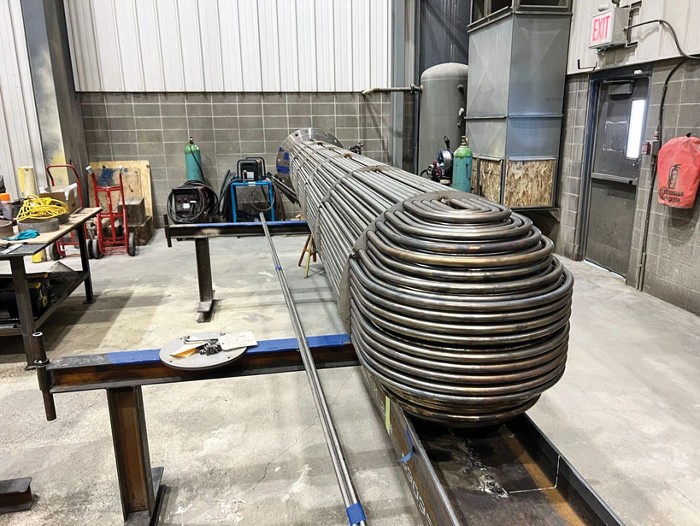Advertisement
Grab your lab coat. Let's get started
Welcome!
Welcome!
Create an account below to get 6 C&EN articles per month, receive newsletters and more - all free.
It seems this is your first time logging in online. Please enter the following information to continue.
As an ACS member you automatically get access to this site. All we need is few more details to create your reading experience.
Not you? Sign in with a different account.
Not you? Sign in with a different account.
ERROR 1
ERROR 1
ERROR 2
ERROR 2
ERROR 2
ERROR 2
ERROR 2
Password and Confirm password must match.
If you have an ACS member number, please enter it here so we can link this account to your membership. (optional)
ERROR 2
ACS values your privacy. By submitting your information, you are gaining access to C&EN and subscribing to our weekly newsletter. We use the information you provide to make your reading experience better, and we will never sell your data to third party members.
Process Chemistry
Imperial and BASF create AI spin-off
Solve uses new chemical process techniques and machine learning to create efficient processes
by Alex Scott
July 18, 2024
| A version of this story appeared in
Volume 102, Issue 22

Imperial College London PhD student Linden Schrecker has secured the backing of the university and BASF to spin out a company that uses artificial intelligence and experimental methods to rapidly devise efficient processes for making products such as drugs and fertilizers. Named Solve, the four-employee company has received undisclosed funding from BASF’s subsidiary Chemovator—a start-up incubator—and the venture capital firm Creator Fund.
Based in London, it is using innovative chemical processing techniques to build large sets of chemical reaction data, which it uses to train machine learning models that can predict the optimal routes for making chemicals. The approach is designed to enable the rapid scale-up of new processes with minimal waste and energy use. Solve expects that the processes it designs will also lead to a cut in plant construction and operating costs.
“Chemistry needs to become more data-driven,” Schrecker says in a press release. “Once you do an experiment, the data should be stored in detail so you can make use of it later. In future there will still be room for creativity by scientists, but they will be working from a more solid foundation,” he says. Before founding Solve, Schrecker was a BASF-funded PhD student at Imperial, working on the self-optimization of organic chemical reactions.
“Knowledge is progressing rapidly on all levels in chemistry,” Sonja Jost, CEO of Dudechem, another AI process technology start-up, says in an email. “AI can help us to get there faster—in particular if we combine it with existing intelligence.” Earlier this year, Berlin-based Dudechem raised €6.5 million ($7.1 million) to progress its route design technology for drug production, which is based on machine learning, AI models, and quantum chemical simulations. The firm reckons its processes can reduce waste by up to 70% and carbon dioxide emissions by 40%.
Chemify, an AI start-up spun out from the University of Glasgow, raised $43 million in 2023 to develop processes that use AI and robotics for automated drug and materials discovery and synthesis.
Software firms including Microsoft are also applying AI to chemical synthesis.




Join the conversation
Contact the reporter
Submit a Letter to the Editor for publication
Engage with us on Twitter